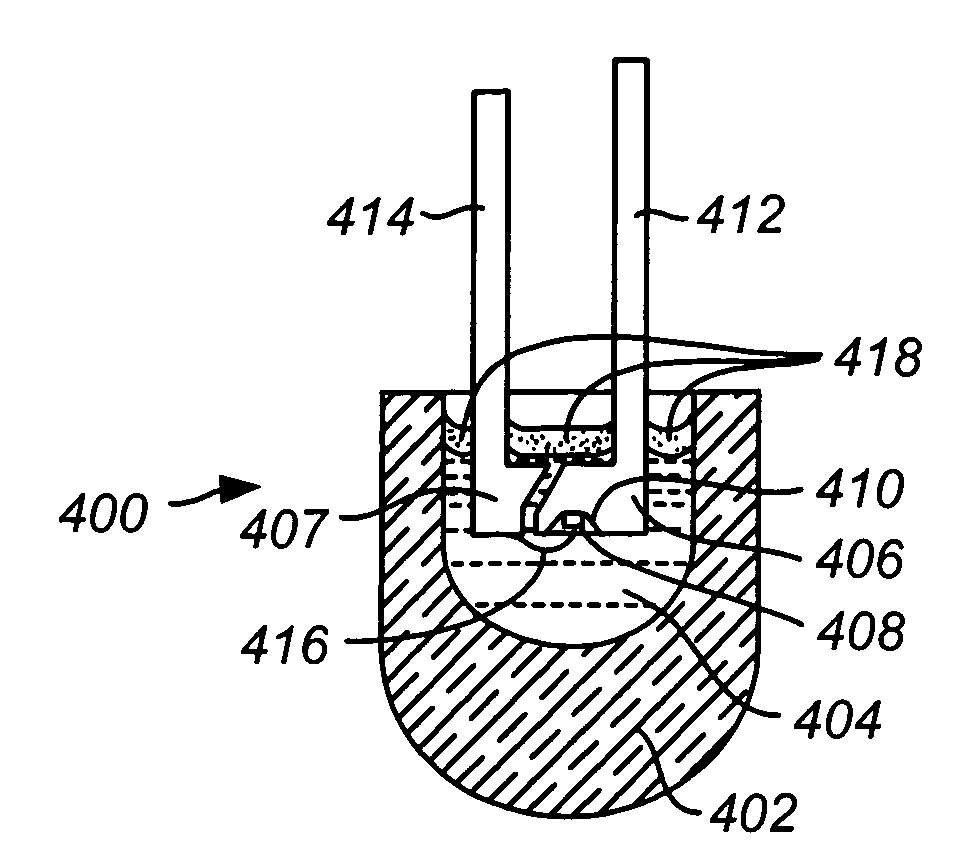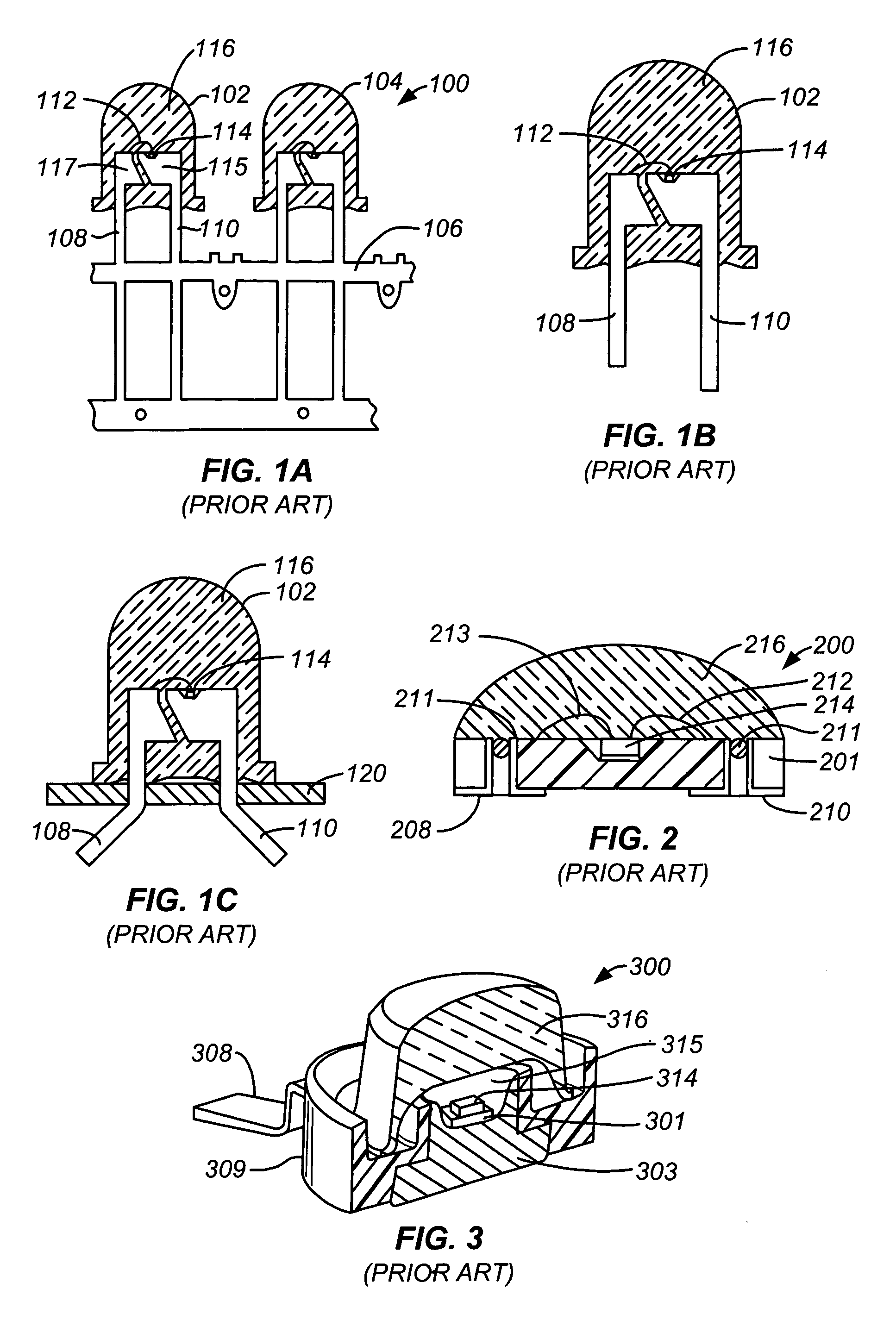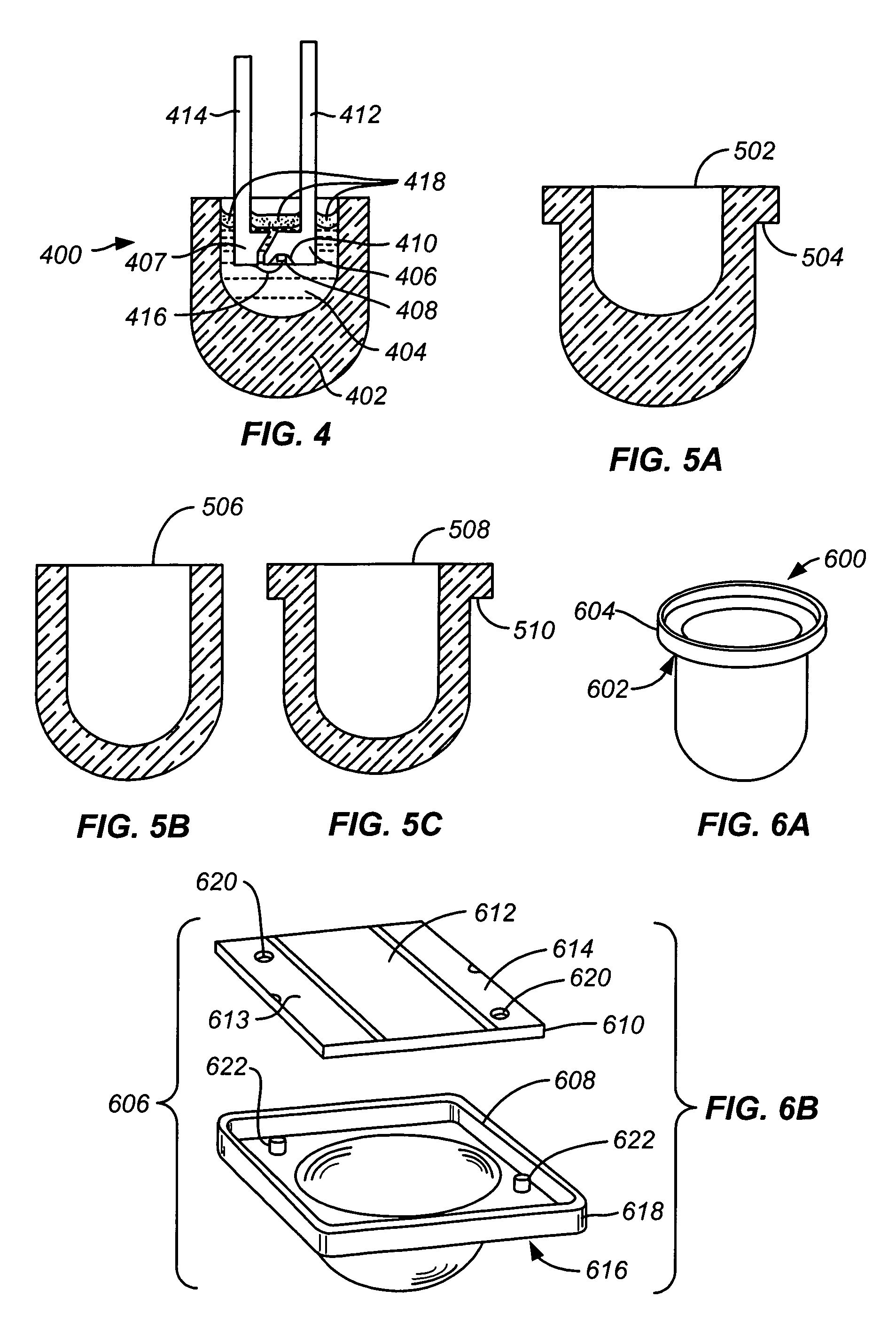Semiconductor light emitting device
a technology of semiconductors and light emitting devices, which is applied in the direction of light and heating equipment, other domestic objects, optical articles, etc., can solve the problems of significant drop in the light output of led devices, thermal and photo degradation of epoxy-based encapsulating materials, and relatively elaborate problems
- Summary
- Abstract
- Description
- Claims
- Application Information
AI Technical Summary
Benefits of technology
Problems solved by technology
Method used
Image
Examples
Embodiment Construction
[0033]Silicone elastomers offer desirable characteristics as an encapsulation material. Silicone elastomers offer high thermal stability, low photo-degradation, low light loss transmission characteristics, a wide range of refractive indices, low stress after encapsulation cure, and low cost. They are non-toxic and are not sensitive to high humidity high temperature environments. Silicone encapsulants are particularly desirable for use with light emissions with a wavelength ranging from 200 nm to 570 nm because of the low transmission loss, and more particularly when used in high-temperature operations (i.e. up to 100° C.).
[0034]However, a cured silicone encapsulant typically has a hardness of less than Durometer Shore 70A. The silicone polymer may be liquid, gelatinous or in solid state under various stages of manufacturing. However the low hardness of silicone polymer has the disadvantages of low resistance to scratches, abrasion and wear. Furthermore, packages formed from silicon ...
PUM
| Property | Measurement | Unit |
|---|---|---|
| wavelength | aaaaa | aaaaa |
| wavelength | aaaaa | aaaaa |
| sizes | aaaaa | aaaaa |
Abstract
Description
Claims
Application Information
 Login to View More
Login to View More - R&D
- Intellectual Property
- Life Sciences
- Materials
- Tech Scout
- Unparalleled Data Quality
- Higher Quality Content
- 60% Fewer Hallucinations
Browse by: Latest US Patents, China's latest patents, Technical Efficacy Thesaurus, Application Domain, Technology Topic, Popular Technical Reports.
© 2025 PatSnap. All rights reserved.Legal|Privacy policy|Modern Slavery Act Transparency Statement|Sitemap|About US| Contact US: help@patsnap.com



